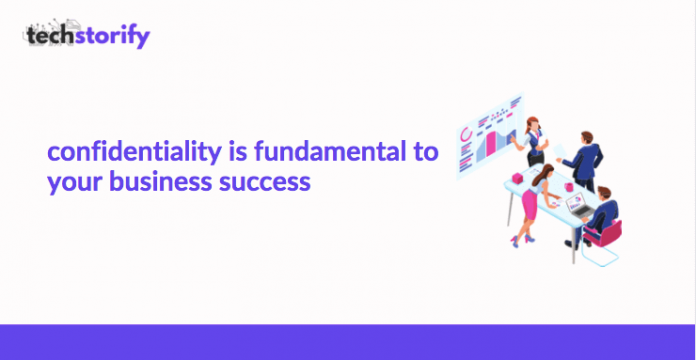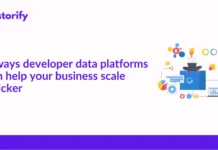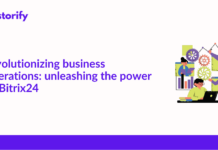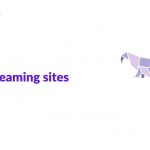If you make a list of things that a business can never compromise on, confidentiality will easily top that list. Confidentiality, especially in this era, is one of the fundamentals for any business of any kind. Would you do business with someone who cannot protect their “secrets,” let alone yours?
Whether it is financial records, trade secrets, patents, intellectual property, formulae, or customer data, businesses are bound to keep sensitive data safe and confidential. But the question stands, how to maintain that confidentiality? How to protect business data?
Among other choices, virtual data rooms are one solid and highly reliable solution that can help you protect “everything” important to your business. Today’s discussion is all about why confidentiality is important for your business and how an electronic data room can protect your business data.
Contents
Confidentiality: Why is it important?
Confidentiality is the goodwill of your business, and here is why it is important.
- If you run a B2B company, your client won’t feel safe doing business with you if they find out you cannot protect your business data.
- Imagine the type of losses a pharmaceutical company has to bear if it fails to protect the findings of its latest clinical trials.
- A business can lose its competitive advantage if its marketing strategies or “recipe” for the newly developed product falls into the hands of its competitors.
- A business may face lawsuits if it fails to protect sensitive customer data or other confidential information. A company’s own secrets can be used against it in a court of law.
- Multinational giants like KFC, Pepsi, etc., may lose their competitive advantage if their “secret formula” goes to their competitors.
These are some scary possible scenarios if a business fails to protect its sensitive information. Moreover, these are not just theories; things have happened in real life. Even the industry leaders, such as Yahoo, have faced horrible data breaches. For instance, Yahoo reported in 2016 that more than 500 million user accounts were exposed.
Confidentiality and virtual data rooms
Due to growing data security concerns, businesses have growing interests in investing in more secure or “fortified” platforms, and this is where virtual data rooms have cemented their place in the most preferred options.
Online data room software is becoming an integral part of various industries around the world, especially M&A markets and the real estate industry. This immense growth of the data room market is backed by facts as the virtual data room market reached a $690.59-million figure back in 2020 and is projected to hit $1607.41 million by 2026.
So why are data rooms becoming so famous in business sectors? How can they protect your business data? What are their advantages? Let’s find out!
What is a data room?
A virtual data room, or simply, data room, is an online data storage facility that allows businesses to upload, store, and exchange business documents in a very secure environment. Basically, it is a cloud-based virtual space where dataroom users can collaborate, store and share business data without worrying about data breaches.
Benefits of virtual data rooms
1. Data security
As mentioned earlier, virtual data rooms are cloud-based repositories where businesses can store data of any type. Virtual data room providers employ multiple layers of security to prevent data breaches. For instance, the two-step authentication simply minimizes the risk of unauthorized entry in the data room even if the password is compromised or stolen.
Then, data room users can share data in encrypted form. This makes sure that the intended user only decodes the data. Remember, organizations not only have to deal with external threats, but they have to minimize internal threats, too and data encryption makes sure that data only reaches the destined receiver.
Moreover, data room users can add digital watermarks to their created documents. Digital watermarking is a great way to combat copyright disputes.
2. Secure data sharing with clients or external parties
Data room software not only helps businesses with secure data storage but it allows them to safely share data with their clients, auditors, and other external parties. Data room administration can change permission settings for specific documents according to their needs.
For example, if the data room management doesn’t want the auditors or anyone else to download or print any document, it can set the “view only” feature for that specific document. Similarly, some data rooms won’t even let the users take screenshots of files (depending on permission settings).
Centralized data sharing is very helpful for data-intensive deals such as M&A transactions. In M&A deals, sellers can add bidders to the data room and give them customized access to corporate materials. Only the administrator can decide who can and cannot access a particular section or file in the data room.
Due to the centralization, data room services are very common in legal services, financial institutions, real estate, investment banking, initial public offerings, etc. The data can be made available to clients or external parties in a controlled environment without worrying about data leaks.
3. Secure intra-organizational collaboration
Virtual data rooms can ensure seamless collaboration between employees within the organization. Project management teams can remotely coordinate from anywhere in the world. They can share or edit files, leave notes in the documents, start group discussions, communicate privately (one-to-one), hold brainstorming sessions, and that too in a highly safe environment.
Final words
Confidentiality or data security is simply one of the most important elements for any successful business. Virtual data rooms are making it a lot easier for organizations to protect their business data from external and internal threats. It is high time that you start using secure platforms such as virtual data rooms to protect your business data.














